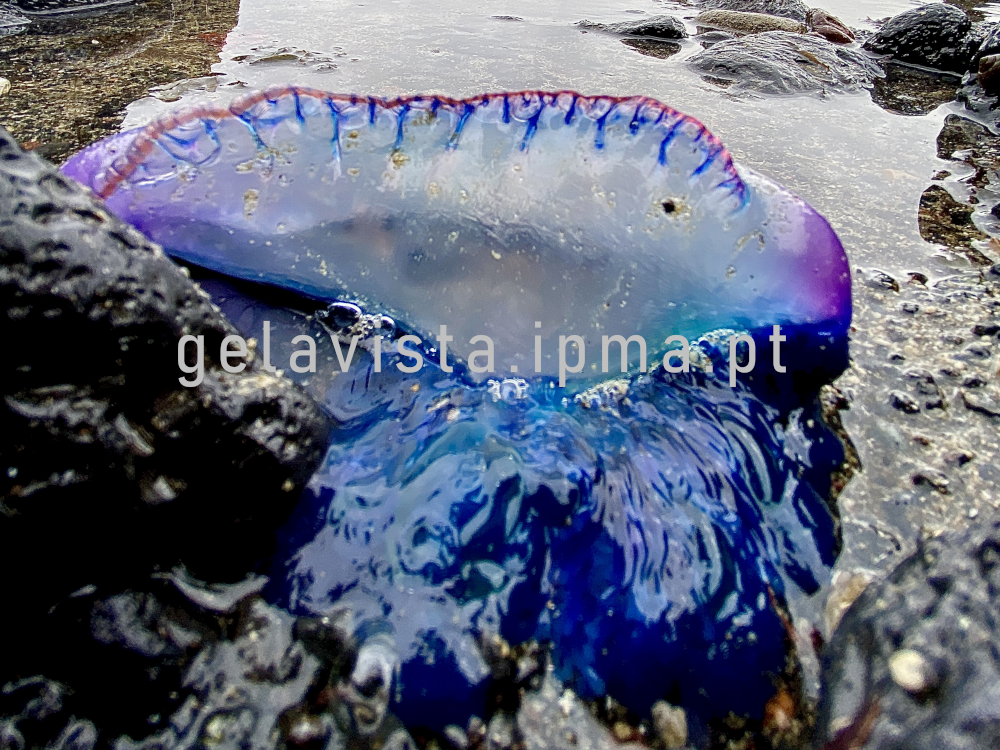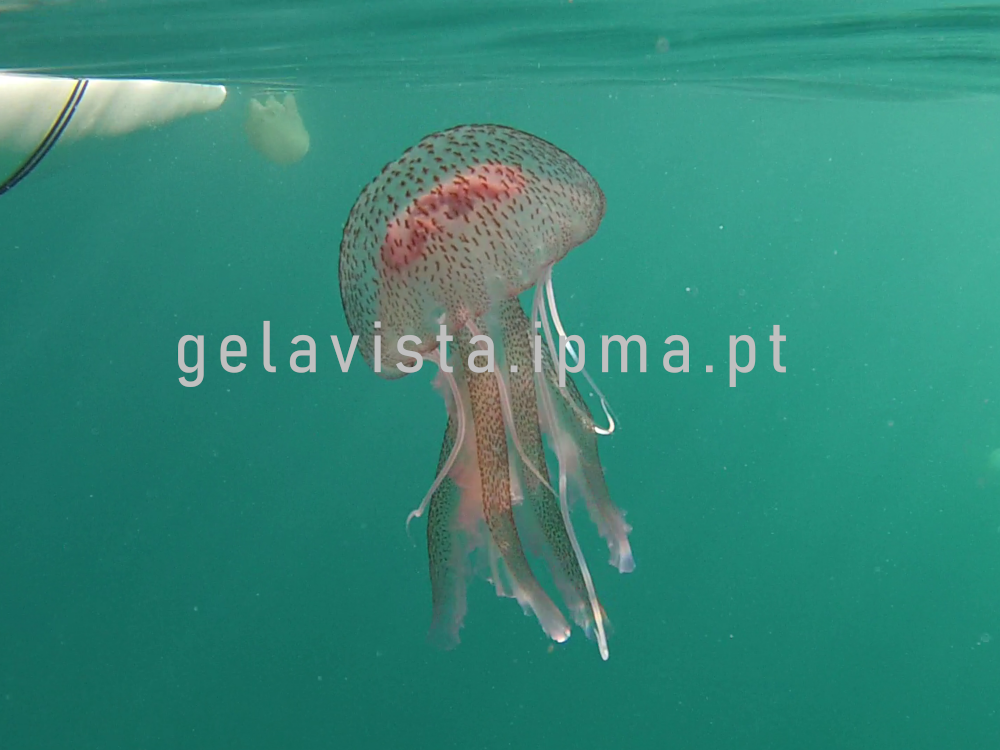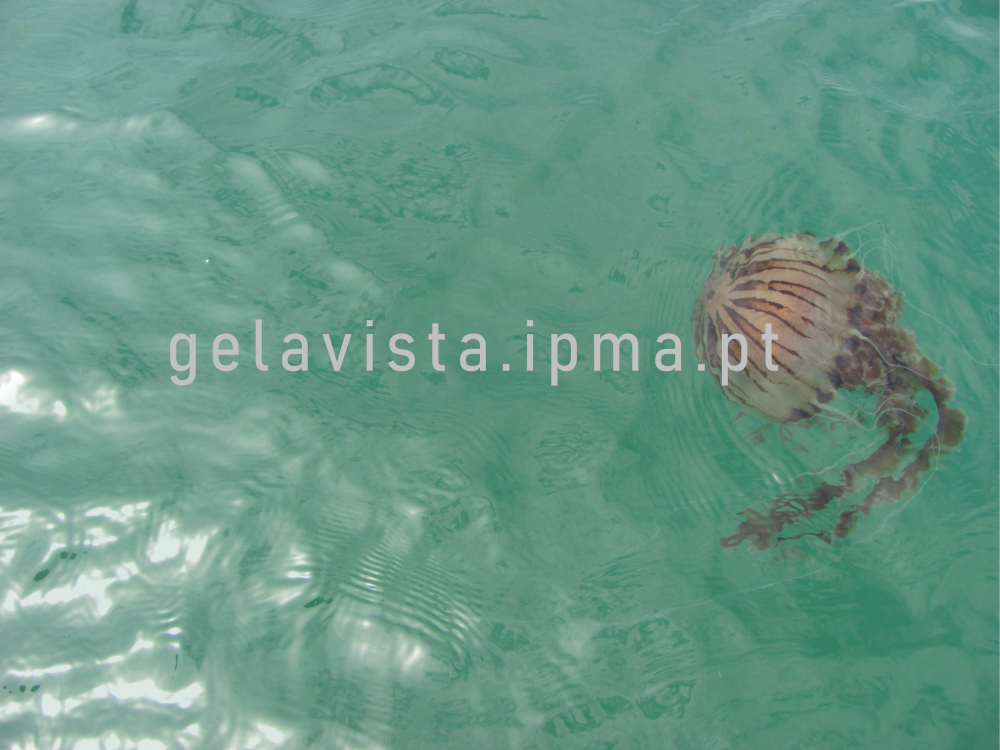Some species of jellyfish can sting, injecting poison and causing local reactions and, in the case of the Portuguese Man o’ War, occasional systemic effects. These species have cells called cnidocytes used for food and defense, which are like tiny syringes that inject toxic substances through contact with other animals. The cnidocytes are found essentially in the tentacles. In the case of humans, the level of toxicity depends on the species and the amount of poison injected. Cnidocytes remain active even when the animals are dead on the beach sand. Most contacts are accidental and occur on the beach. Therefore, it is important to avoid touching these organisms, especially tentacles.
Wash the affected area with sea water, without rubbing
Remove any remaining tentacles that may have been left on the skin with a tweezer
Do not use fresh water, vinegar*, alcohol or ammonia!
Do not apply bandages!
* with the exception of contact with a Portuguese Man o’ War
After washing and cleaning the affected area with sea water:

After washing and cleaning the affected area with sea water:

